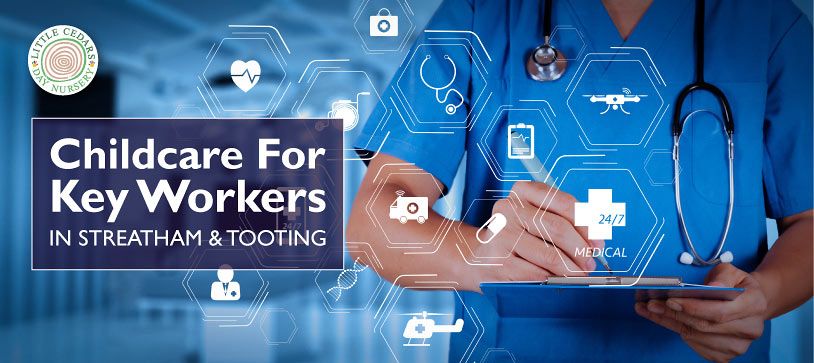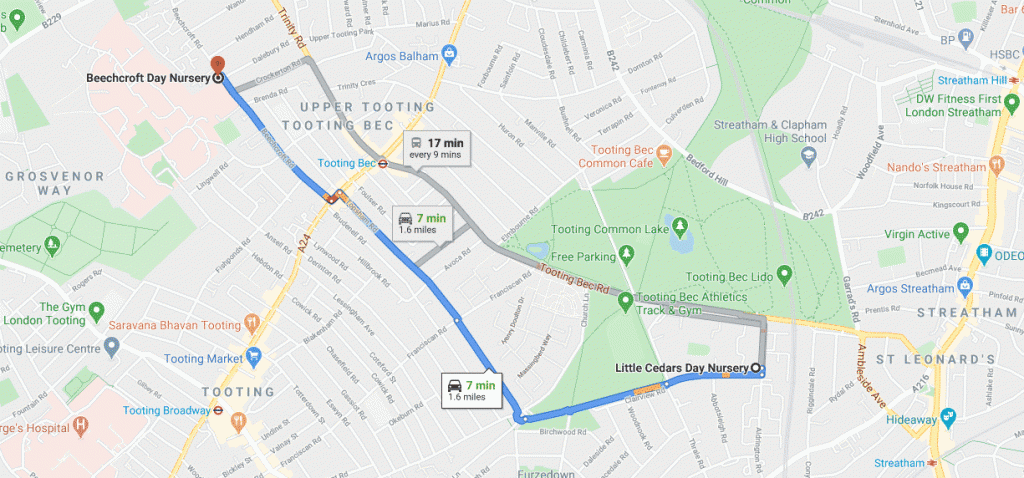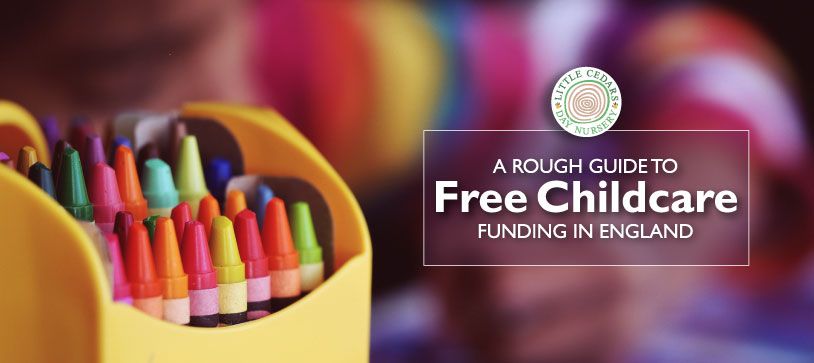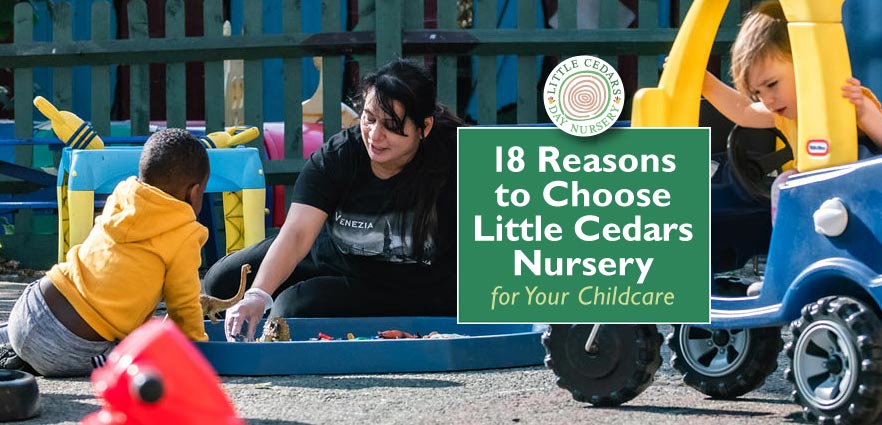
If you’re choosing a nursery or pre-school for your child in or around Streatham, Furzedown, Tooting or Balham, making your final choice may not be as hard as you think. Take a look at 18 compelling reasons to choose Little Cedars Nursery below. You’ll soon see why we’d make an unbeatable choice for the childcare of under-fives in the area.
1. Superb Parent Feedback
 Independent feedback from other parents is worth its weight in gold. In the last five years, Little Cedars has received only 5-star reviews on Google and Facebook. That’s top marks, consistently for 5 years running.* Comments that accompanied these independent reviews were equally compelling — here are just a few examples:
Independent feedback from other parents is worth its weight in gold. In the last five years, Little Cedars has received only 5-star reviews on Google and Facebook. That’s top marks, consistently for 5 years running.* Comments that accompanied these independent reviews were equally compelling — here are just a few examples:
“Amazing nursery! Our daughter loved it here and all the staff are fantastic!”
“[The] team are amazing in every way, with the attention and time they give to the children. Very good knowledge on childhood illnesses and allergies.”
“With the new management this nursery is better than ever. Well done Maggie!”
“Lovely nursery, great team and an amazing outdoor space — they have animals which is fantastic. Amazing management team …”
“I just love the friendly vibes, the lovely facilities (including resources, grand garden and animals!). Maggie, the manager, has been just wonderful and you can see her deep commitment as she often supports her team in the rooms! [A] hands-on manager that will always give you time to talk about your child is a recipe for a success! Highly recommended!”
Ofsted also remarked that parents gave them wonderful feedback about the nursery in their recent Ofsted inspection.
2. Rated as a “Good Provider” of Childcare by Ofsted
In Ofsted’s recent appraisal, they consistently rated Little Cedars Day Nursery as “Good” — in every category. The Ofsted report sang our praises across the board. Here’s how they rated each of the core, specific areas in their opening synopsis:
 Quality of education is rated as ‘Good.’
Quality of education is rated as ‘Good.’- The quality of leadership & management is rated as ‘Good.’
- Behaviour & attitudes are rated as ‘Good.’
- Opportunities for personal development are rated as ‘Good.’
Learn more about the excellent Ofsted report for Little Cedars Day Nursery, here.
3. A Home-From-Home for Under-5s
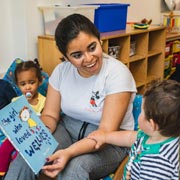 Little Cedars is a warm, welcoming and nurturing environment. To the babies and children, it very much becomes a home-from-home where they feel safe, valued, cared for and all with wonderful, close relationships with both peers and our childcare professionals. It’s also a place of immense fun where little ones are happy, stimulated and nurtured in order to bring out the best in them.
Little Cedars is a warm, welcoming and nurturing environment. To the babies and children, it very much becomes a home-from-home where they feel safe, valued, cared for and all with wonderful, close relationships with both peers and our childcare professionals. It’s also a place of immense fun where little ones are happy, stimulated and nurtured in order to bring out the best in them.
4. Exceptional Resources, Equipment & Facilities
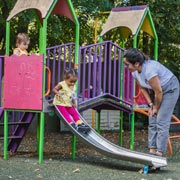 Little Cedars Nursery is extremely well resourced and equipped, both inside and out. Take a look at our photo gallery to see the high quality equipment outside to give you an idea. We have an amazing array of facilities that children will love, as they play and learn. They will have immense fun while also learning in the most natural of ways. We have multi-sensory areas, carefully-chosen reading materials, interactive toys and equipment and specially designed areas for each specific age group.
Little Cedars Nursery is extremely well resourced and equipped, both inside and out. Take a look at our photo gallery to see the high quality equipment outside to give you an idea. We have an amazing array of facilities that children will love, as they play and learn. They will have immense fun while also learning in the most natural of ways. We have multi-sensory areas, carefully-chosen reading materials, interactive toys and equipment and specially designed areas for each specific age group.
5. Affordable Childcare Fees
For those childcare hours that are not covered by Government schemes, our nursery and pre-school fees are very good value. What’s more, prices are discounted for children attending all five week days each week. Siblings attending at the same time also receive a 13% discount, making childcare services at Little Cedars Day Nursery even more affordable.*
6. Free Childcare Funding Schemes for Eligible 2-Year-Olds
 If your 2-year-old is eligible for the Government’s free childcare scheme for this age group, rest assured that Little Cedars Day Nursery supports them and this can potentially give your little one 15 free hours of childcare per week for as many as 38 weeks of the year. That’s 570 free childcare hours per year for your 2-year-old!
If your 2-year-old is eligible for the Government’s free childcare scheme for this age group, rest assured that Little Cedars Day Nursery supports them and this can potentially give your little one 15 free hours of childcare per week for as many as 38 weeks of the year. That’s 570 free childcare hours per year for your 2-year-old!
7. 15-30 Hours of Free Childcare Per Week for Eligible 3 & 4-Year-Olds
We also support the free, Government-funded childcare schemes for eligible 3 and 4-year-olds, giving them 15 to 30 free childcare hours per week over 38 weeks of the year. That’s 570 to 1140 hours of free childcare each year if they’re eligible. The good news is that all 3 and 4-year-olds living in England are eligible for the 15 free hours per week as a bare minimum.
Check out our Rough Guide to Free Childcare Funding in England for more details.
8. Free Childcare Vouchers Accepted
Little Cedars Day Nursery accepts recognised and valid childcare vouchers, which can really help with affordability. That’s never been more important and useful for families.
9. Great Support for Children with Additional Needs
If your child has additional special needs, choosing the right nursery/pre-school for them is an even harder task. However, Little Cedars Day Nursery has that covered too. Here’s what the independent Ofsted inspector had to say about the topic in their recent visit:
“Children who have additional needs are making good progress from their starting points. Managers and staff offer highly effective support and work closely with parents and other agencies … enabling targeted support that helps children reach their full potential.”
10. Healthy, Balanced Meals & Snacks
Our in-house chef prepares healthy meals for the children each day, along with healthy snacks. Only fresh, high quality ingredients are used to produce the children’s healthy, balanced meals and all special diets are catered for.
Food and snacks are included in our standard fees with the exception of 3 and 4-year-olds receiving Government funding for their nursery places. For those alone, there is a small fee for meals because those are not covered by Government funding. There is, however, no fee for food for 2-year-old funded places.*
11. A Key Person Assigned to Every Child
 A Key Person is assigned to each child at Little Cedars Nursery. This is an early years practitioner who ensures that the child’s needs are being catered for and that their care at the setting is tailored to them as an individual. They help children settle in when they first join the nursery and build strong relationships with both the child and the parents. They are therefore usually the natural and key point of contact at the nursery.
A Key Person is assigned to each child at Little Cedars Nursery. This is an early years practitioner who ensures that the child’s needs are being catered for and that their care at the setting is tailored to them as an individual. They help children settle in when they first join the nursery and build strong relationships with both the child and the parents. They are therefore usually the natural and key point of contact at the nursery.
12. A Learning & Development Programme Tailored to Your Child
A totally bespoke learning and development programme is developed for each individual child at the setting. This is designed to bring out the very best in them — in every area. So, areas where they’re naturally gifted are made even stronger and any areas where they need extra focus are identified, with appropriate measures introduced as required — including in any areas of special need. In this way, children achieve personal bests across the board and their potential outcomes are absolutely maximised.
13. A Progress Journal for Every Child
The early years practitioners at Little Cedars are so much more than childminders and Little Cedars should not be thought of as just a crèche. Our childcare professionals facilitate the early learning of children and constantly monitor their progress. Indeed a progress journal is maintained for every child as a continuous record of their learning journey. Parents/carers have access to this at any time and are also encouraged to add to it, using its findings to aid the continuation of the child’s learning and development programme even when at home. It’s all an integral part of ensuring that each child thrives in every area of their learning and development.
14. Hand Picked, High Quality Staff
 We have a very special team at Little Cedars Nursery. Every one of them has been hand picked to ensure they are the perfect fit for the nursery and for the children therein. They’re warm, natural carers who will form wonderful relationships with children and bring out the very best in them. They become the children’s safe, familiar and friendly faces at the setting as well as facilitating top-notch learning and early years education. They also ensure every child is happy and is having fun whilst under our care.
We have a very special team at Little Cedars Nursery. Every one of them has been hand picked to ensure they are the perfect fit for the nursery and for the children therein. They’re warm, natural carers who will form wonderful relationships with children and bring out the very best in them. They become the children’s safe, familiar and friendly faces at the setting as well as facilitating top-notch learning and early years education. They also ensure every child is happy and is having fun whilst under our care.
15. Everything Has a Purpose at Little Cedars Nursery
At Little Cedars nursery/pre-school, everything has a purpose. Whether it’s a hand-picked book or piece of equipment, an interactive game or a particular activity the children are undertaking, it is there for a specific reason and is there to benefit each child in a particular way. An awful lot of thought goes into every little detail at Little Cedars in order to give children the tools to fulfil their utmost potential.
16. A Complete, All-Round Early Years Education
 At Little Cedars we do so much more than simply look after babies, toddlers and under-fives. We educate and nurture them too. In fact, we ensure that our little ones achieve personal bests in all 7 areas of the Early Years Foundation Stage (EYFS). This is a high quality, all-encompassing learning and development framework that covers communication and language, physical development, personal, social and emotional development, literacy, mathematics, understanding the world and expressive arts and design. It pretty much covers everything children need to blossom and thrive.
At Little Cedars we do so much more than simply look after babies, toddlers and under-fives. We educate and nurture them too. In fact, we ensure that our little ones achieve personal bests in all 7 areas of the Early Years Foundation Stage (EYFS). This is a high quality, all-encompassing learning and development framework that covers communication and language, physical development, personal, social and emotional development, literacy, mathematics, understanding the world and expressive arts and design. It pretty much covers everything children need to blossom and thrive.
17. We Prepare Under-Fives for Starting School
One of the key goals at Little Cedars Day Nursery and pre-school is to prepare the children for when they transition to school at the age of five. That’s a key milestone in their lives and we ensure that their transition goes as smoothly as possible. This includes a good early years education, as well as the fostering of good physical and mental skills, independence, good social skills and suchlike. When they leave us for school, they leave as the very best version of themselves, fully equipped to absolutely hit the ground running.
18. Safety is Always Paramount
The safeguarding of all babies and children under our care is of paramount importance to Little Cedars Nursery. Ofsted recognise this too, commenting in their recent report that our arrangements for safeguarding are effective, with risk assessments and appropriate procedures all being in place. So, as a parent or carer, you can rest easy in the knowledge that your baby, toddler or under-five child is in very safe hands — and that’s even independently verified by the experts.
Apply for a Place at Little Cedars Nursery & Pre-school
A nursery place for your child in Streatham, near Furzedown, Tooting, Balham, Norbury & Colliers Wood

 We hope you can now see all the benefits of sending your baby, toddler or preschooler to Little Cedars nursery/pre-school. If you are looking for a good nursery/pre-school in Streatham, or high quality childcare near Streatham Hill, Streatham Park, Streatham Common or Furzedown, Little Cedars Nursery would make an excellent choice. We’re also close by if you live or work near Tooting, Tooting Bec, Tooting Broadway, Tooting Common, Balham, Norbury or Colliers Wood. Contact us today to get started with your child’s nursery application or to arrange a visit, so you and your little one can see it for yourselves. Please choose a button to get started:
We hope you can now see all the benefits of sending your baby, toddler or preschooler to Little Cedars nursery/pre-school. If you are looking for a good nursery/pre-school in Streatham, or high quality childcare near Streatham Hill, Streatham Park, Streatham Common or Furzedown, Little Cedars Nursery would make an excellent choice. We’re also close by if you live or work near Tooting, Tooting Bec, Tooting Broadway, Tooting Common, Balham, Norbury or Colliers Wood. Contact us today to get started with your child’s nursery application or to arrange a visit, so you and your little one can see it for yourselves. Please choose a button to get started:
* Correct at time of writing (mid-August 2022).
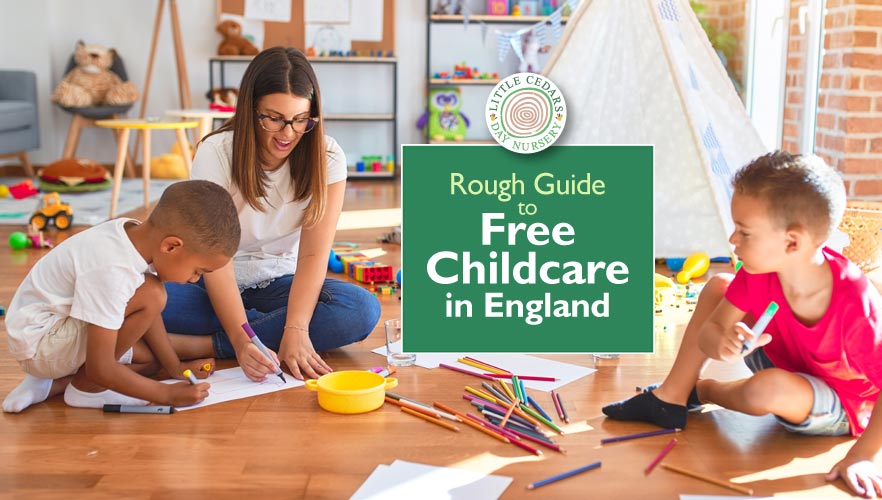
 With Universal Free Childcare, children aged 3 or 4 can receive up to 570 hours of free childcare over the course of the year.
With Universal Free Childcare, children aged 3 or 4 can receive up to 570 hours of free childcare over the course of the year.
 Little Cedars is officially a good nursery/pre-school and offers high quality childcare in Streatham, London SW16. Subject to eligibility and availability, we support Government childcare funding schemes for babies, toddlers, preschoolers and children under five at the setting.
Little Cedars is officially a good nursery/pre-school and offers high quality childcare in Streatham, London SW16. Subject to eligibility and availability, we support Government childcare funding schemes for babies, toddlers, preschoolers and children under five at the setting.
 With Extended Free Childcare, eligible 3- and 4-year-olds can receive up to 1140 hours of free childcare per year instead of only 570.
With Extended Free Childcare, eligible 3- and 4-year-olds can receive up to 1140 hours of free childcare per year instead of only 570. Some disadvantaged children aged 2 can also receive up to 570 hours of free childcare over the course of the year.
Some disadvantaged children aged 2 can also receive up to 570 hours of free childcare over the course of the year. For those that are eligible, up to £2,000 in free childcare is available each year to children aged 11 or under* through the Tax-Free Childcare scheme.
For those that are eligible, up to £2,000 in free childcare is available each year to children aged 11 or under* through the Tax-Free Childcare scheme. You can sacrifice up to £55 per week of your earnings, which will be free of National Insurance and Income Tax, to fund Childcare Vouchers.
You can sacrifice up to £55 per week of your earnings, which will be free of National Insurance and Income Tax, to fund Childcare Vouchers. Following the Spring Budget 2023, childcare funding through Universal Credit is to be improved with nearly 50% more generous funding becoming available from July 2023.
Following the Spring Budget 2023, childcare funding through Universal Credit is to be improved with nearly 50% more generous funding becoming available from July 2023. Those already claiming for childcare costs via Working Tax Credits may be able to obtain up to £122.50 for one or £210.00 for more than one child each week.
Those already claiming for childcare costs via Working Tax Credits may be able to obtain up to £122.50 for one or £210.00 for more than one child each week. 2-year-olds may be eligible for the ’15 Hours’ scheme from April 2024.
2-year-olds may be eligible for the ’15 Hours’ scheme from April 2024. Up to 85% of childcare costs incurred by students may be claimed, up to a maximum of £188.90 per week for 1 child or £323.85 for 2 or more (correct for academic year 2023-2024).
Up to 85% of childcare costs incurred by students may be claimed, up to a maximum of £188.90 per week for 1 child or £323.85 for 2 or more (correct for academic year 2023-2024). Up to £160 per child is available each week for those living outside London.
Up to £160 per child is available each week for those living outside London. While it’s not designed to fund childcare, it can be used to do so in some circumstances.
While it’s not designed to fund childcare, it can be used to do so in some circumstances.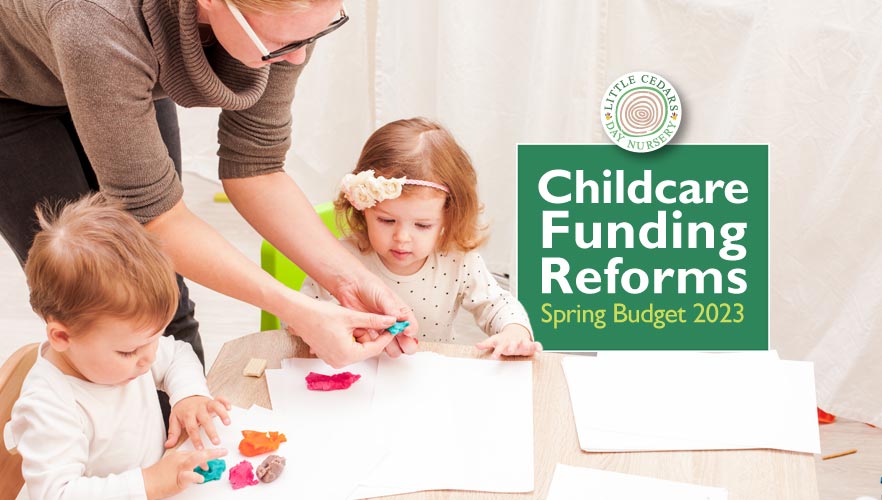
 March 15th 2023 saw the Chancellor of the Exchequer’s Spring Budget announcement, which included news of extra funding to cover costs for childcare. Crucially, the new funding will support childcare for infants as young as 9 months old for the first time, as well as including other positive changes. Although it’ll be introduced in stages, the free funding should be welcome news for those parents who will be eligible. Let’s take a look today at the proposed childcare changes, including which age groups will benefit, what extra funding is promised to support families and when the new help will become available. First, though, we’ll look at the main aims of the new funding.
March 15th 2023 saw the Chancellor of the Exchequer’s Spring Budget announcement, which included news of extra funding to cover costs for childcare. Crucially, the new funding will support childcare for infants as young as 9 months old for the first time, as well as including other positive changes. Although it’ll be introduced in stages, the free funding should be welcome news for those parents who will be eligible. Let’s take a look today at the proposed childcare changes, including which age groups will benefit, what extra funding is promised to support families and when the new help will become available. First, though, we’ll look at the main aims of the new funding. The ‘main event’ in the Spring Budget from the perspective of childcare provision is the significant expansion of the ‘free hours’ schemes. Previously, only
The ‘main event’ in the Spring Budget from the perspective of childcare provision is the significant expansion of the ‘free hours’ schemes. Previously, only  Some struggling parents in receipt of Universal Credit childcare support, who would like to move into work or increase existing working hours, will have subsidised childcare costs paid in advance under the new proposals. This is in contrast to the existing approach where all parents had to pay for the childcare upfront and then reclaim the costs retrospectively. Funding the childcare costs in advance will make the subsidised childcare costs much easier for the lowest-income families to afford from a practical, cash-flow point of view. It will also hopefully improve the situation whereby, currently, only 13% of eligible low-income families actually claim the childcare element of Universal Credit.
Some struggling parents in receipt of Universal Credit childcare support, who would like to move into work or increase existing working hours, will have subsidised childcare costs paid in advance under the new proposals. This is in contrast to the existing approach where all parents had to pay for the childcare upfront and then reclaim the costs retrospectively. Funding the childcare costs in advance will make the subsidised childcare costs much easier for the lowest-income families to afford from a practical, cash-flow point of view. It will also hopefully improve the situation whereby, currently, only 13% of eligible low-income families actually claim the childcare element of Universal Credit. Although this website and our childcare service are geared to the early years age groups, it would be remiss of us not to include a brief overview of the enhancements that are being introduced for children of school age. These are coming in via proposed changes to what is known as ‘Wraparound Care’ as we’ll explain.
Although this website and our childcare service are geared to the early years age groups, it would be remiss of us not to include a brief overview of the enhancements that are being introduced for children of school age. These are coming in via proposed changes to what is known as ‘Wraparound Care’ as we’ll explain.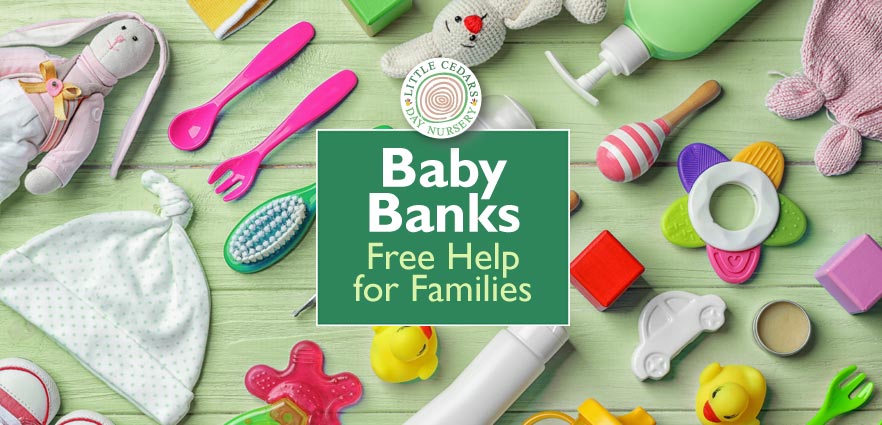
 Today’s post will appeal to families who are finding the current financial climate particularly challenging. With energy costs and inflation so high, the following may represent a welcome piece of good news. Today we highlight the many Baby Banks that are popping up all around the UK and explain how they can help struggling families, all for free.
Today’s post will appeal to families who are finding the current financial climate particularly challenging. With energy costs and inflation so high, the following may represent a welcome piece of good news. Today we highlight the many Baby Banks that are popping up all around the UK and explain how they can help struggling families, all for free. A Baby bank is a similar concept to a food bank. However, instead of food and drink, it provides second-hand clothing, toys and equipment for babies, under-fives and often even for children up to the age of 16 in some cases. Baby Banks can also be compared to a charity shop, however, with baby banks, everything is free.
A Baby bank is a similar concept to a food bank. However, instead of food and drink, it provides second-hand clothing, toys and equipment for babies, under-fives and often even for children up to the age of 16 in some cases. Baby Banks can also be compared to a charity shop, however, with baby banks, everything is free. Baby Banks are run by all sorts of different people and organisations and therefore the rules around actually getting ones hands on the free items vary from Baby Bank to Baby Bank. Some accept requests for items directly from families themselves. Others only deal via a referral from some kind of professional. Examples include social workers, family support agencies, teachers, family centres, health visitors, medical professionals, food banks and women’s refuges. So, once you have located your nearest Baby Bank, you will need to check whether they will deal with you directly or only through such a referral. Either way, you will usually need to agree a time and date for collection of your item with the Baby Bank (you can’t usually just turn up, although there are exceptions). Not all Baby Banks are open all week and that’s another reason to check with Baby Banks or their websites first.
Baby Banks are run by all sorts of different people and organisations and therefore the rules around actually getting ones hands on the free items vary from Baby Bank to Baby Bank. Some accept requests for items directly from families themselves. Others only deal via a referral from some kind of professional. Examples include social workers, family support agencies, teachers, family centres, health visitors, medical professionals, food banks and women’s refuges. So, once you have located your nearest Baby Bank, you will need to check whether they will deal with you directly or only through such a referral. Either way, you will usually need to agree a time and date for collection of your item with the Baby Bank (you can’t usually just turn up, although there are exceptions). Not all Baby Banks are open all week and that’s another reason to check with Baby Banks or their websites first. Absolutely! Baby Banks rely on the generous donations from families that no long require their baby clothes or equipment. Perhaps the child has grown out of them and the items are still in good condition, or perhaps they were an unwanted gift. Donating items is also a great way to declutter and to make space in the home, as well as helping others. However, before donating to a Baby Bank, always check with them to see if all your proposed items are required and, as before, ensure you know whether an appointment is needed or whether you can just turn up with your items. Certain rules may also apply around the condition and type of items (this varies depending upon which Baby Bank you are dealing with). Baby car seats and electronic items may also have special rules due to the extra safety considerations.
Absolutely! Baby Banks rely on the generous donations from families that no long require their baby clothes or equipment. Perhaps the child has grown out of them and the items are still in good condition, or perhaps they were an unwanted gift. Donating items is also a great way to declutter and to make space in the home, as well as helping others. However, before donating to a Baby Bank, always check with them to see if all your proposed items are required and, as before, ensure you know whether an appointment is needed or whether you can just turn up with your items. Certain rules may also apply around the condition and type of items (this varies depending upon which Baby Bank you are dealing with). Baby car seats and electronic items may also have special rules due to the extra safety considerations.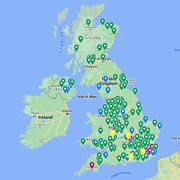
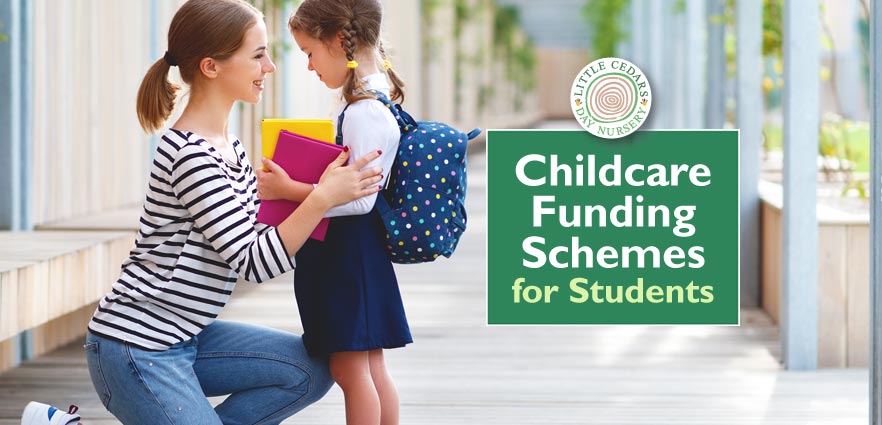
 Are you a student as well as a parent? If so, there are several Government schemes that offer help with childcare costs, some of which will save student parents substantial amounts of money. By doing so, they also make the prospect of juggling parenthood with being a student much more manageable. Today we examine the key childcare funding options, including how the type of course and the age of the parent affect eligibility.
Are you a student as well as a parent? If so, there are several Government schemes that offer help with childcare costs, some of which will save student parents substantial amounts of money. By doing so, they also make the prospect of juggling parenthood with being a student much more manageable. Today we examine the key childcare funding options, including how the type of course and the age of the parent affect eligibility. The very generous Student Childcare Grant is available for eligible students who who are studying full-time on a higher education course and have dependent children aged 14 or under (16 or under if they have special needs).
The very generous Student Childcare Grant is available for eligible students who who are studying full-time on a higher education course and have dependent children aged 14 or under (16 or under if they have special needs). If you are aged 20 or over, are a parent studying in further education for a qualification on a Level 3 course or below and are facing financial hardship, you may be eligible for childcare funding under the Learner Support scheme. This funding could help you with childcare and other study-related costs if you fit the right eligibility criteria.
If you are aged 20 or over, are a parent studying in further education for a qualification on a Level 3 course or below and are facing financial hardship, you may be eligible for childcare funding under the Learner Support scheme. This funding could help you with childcare and other study-related costs if you fit the right eligibility criteria. If you are a parent as well as a student aged under 20 when you begin one of a range of publicly-funded courses in England, you may be eligible for childcare funding through the Care to Learn bursary scheme. If eligible, you could claim as much as £175 in childcare per week, per child if you live in London, reducing to £160 per week, per child, outside London.
If you are a parent as well as a student aged under 20 when you begin one of a range of publicly-funded courses in England, you may be eligible for childcare funding through the Care to Learn bursary scheme. If eligible, you could claim as much as £175 in childcare per week, per child if you live in London, reducing to £160 per week, per child, outside London.
 Independent feedback from other parents is worth its weight in gold. In the last five years, Little Cedars has received only 5-star reviews on Google and Facebook. That’s top marks, consistently for 5 years running.* Comments that accompanied these independent reviews were equally compelling — here are just a few examples:
Independent feedback from other parents is worth its weight in gold. In the last five years, Little Cedars has received only 5-star reviews on Google and Facebook. That’s top marks, consistently for 5 years running.* Comments that accompanied these independent reviews were equally compelling — here are just a few examples: Little Cedars is a warm, welcoming and nurturing environment. To the babies and children, it very much becomes a home-from-home where they feel safe, valued, cared for and all with wonderful, close relationships with both peers and our childcare professionals. It’s also a place of immense fun where little ones are happy, stimulated and nurtured in order to bring out the best in them.
Little Cedars is a warm, welcoming and nurturing environment. To the babies and children, it very much becomes a home-from-home where they feel safe, valued, cared for and all with wonderful, close relationships with both peers and our childcare professionals. It’s also a place of immense fun where little ones are happy, stimulated and nurtured in order to bring out the best in them. Little Cedars Nursery is extremely well resourced and equipped, both inside and out.
Little Cedars Nursery is extremely well resourced and equipped, both inside and out.  If your 2-year-old is eligible for the Government’s free childcare scheme for this age group, rest assured that Little Cedars Day Nursery supports them and this can potentially give your little one 15 free hours of childcare per week for as many as 38 weeks of the year. That’s 570 free childcare hours per year for your 2-year-old!
If your 2-year-old is eligible for the Government’s free childcare scheme for this age group, rest assured that Little Cedars Day Nursery supports them and this can potentially give your little one 15 free hours of childcare per week for as many as 38 weeks of the year. That’s 570 free childcare hours per year for your 2-year-old! A Key Person is assigned to each child at Little Cedars Nursery. This is an early years practitioner who ensures that the child’s needs are being catered for and that their care at the setting is tailored to them as an individual. They help children settle in when they first join the nursery and build strong relationships with both the child and the parents. They are therefore usually the natural and key point of contact at the nursery.
A Key Person is assigned to each child at Little Cedars Nursery. This is an early years practitioner who ensures that the child’s needs are being catered for and that their care at the setting is tailored to them as an individual. They help children settle in when they first join the nursery and build strong relationships with both the child and the parents. They are therefore usually the natural and key point of contact at the nursery. We have a very special team at Little Cedars Nursery. Every one of them has been hand picked to ensure they are the perfect fit for the nursery and for the children therein. They’re warm, natural carers who will form wonderful relationships with children and bring out the very best in them. They become the children’s safe, familiar and friendly faces at the setting as well as facilitating top-notch learning and early years education. They also ensure every child is happy and is having fun whilst under our care.
We have a very special team at Little Cedars Nursery. Every one of them has been hand picked to ensure they are the perfect fit for the nursery and for the children therein. They’re warm, natural carers who will form wonderful relationships with children and bring out the very best in them. They become the children’s safe, familiar and friendly faces at the setting as well as facilitating top-notch learning and early years education. They also ensure every child is happy and is having fun whilst under our care. At Little Cedars we do so much more than simply look after babies, toddlers and under-fives. We educate and nurture them too. In fact, we ensure that our little ones achieve personal bests in all 7 areas of
At Little Cedars we do so much more than simply look after babies, toddlers and under-fives. We educate and nurture them too. In fact, we ensure that our little ones achieve personal bests in all 7 areas of 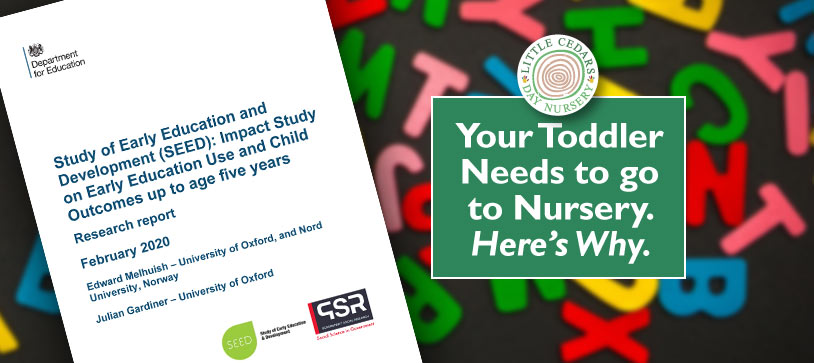
 There are compelling reasons why under-fives should attend early years education and childcare settings like nurseries or pre-schools, or their equivalent — before starting school. Missing this crucial stage in their early years education and development may disadvantage the child — a fact that’s backed up by various studies.
There are compelling reasons why under-fives should attend early years education and childcare settings like nurseries or pre-schools, or their equivalent — before starting school. Missing this crucial stage in their early years education and development may disadvantage the child — a fact that’s backed up by various studies. Some of these benefits are even more pronounced for disadvantaged children who start to attend formal ECEC sessions no later than the age of two. The DfE impact study shows that 2-year-olds benefit most if they receive early education and care for an absolute minimum of 10 hours per week by the age of two. Three- and four-year-old children from disadvantaged backgrounds benefit most from no less than 20 hours per week thereafter in the run-up to the start of primary school at age 5. Children who follow this approach have better verbal abilities when they start school and are also much more likely to achieve expected levels of personal attainment during reception year at school. The studies show that, with ECEC’s highly appropriate, structured preparation beforehand, children are able to hit the ground running once they transition to school.
Some of these benefits are even more pronounced for disadvantaged children who start to attend formal ECEC sessions no later than the age of two. The DfE impact study shows that 2-year-olds benefit most if they receive early education and care for an absolute minimum of 10 hours per week by the age of two. Three- and four-year-old children from disadvantaged backgrounds benefit most from no less than 20 hours per week thereafter in the run-up to the start of primary school at age 5. Children who follow this approach have better verbal abilities when they start school and are also much more likely to achieve expected levels of personal attainment during reception year at school. The studies show that, with ECEC’s highly appropriate, structured preparation beforehand, children are able to hit the ground running once they transition to school. As well as having a positive effect on children’s readiness for school, there is also compelling evidence that early years education at good nursery/pre-school type settings has a marked, positive effect on children’s long-term attainment levels there – and indeed on their lifelong outcomes. As such, early years education and care represents an extremely solid foundation for children’s futures in general.
As well as having a positive effect on children’s readiness for school, there is also compelling evidence that early years education at good nursery/pre-school type settings has a marked, positive effect on children’s long-term attainment levels there – and indeed on their lifelong outcomes. As such, early years education and care represents an extremely solid foundation for children’s futures in general. Are you looking at nursery/pre-school options for your baby or toddler?
Are you looking at nursery/pre-school options for your baby or toddler?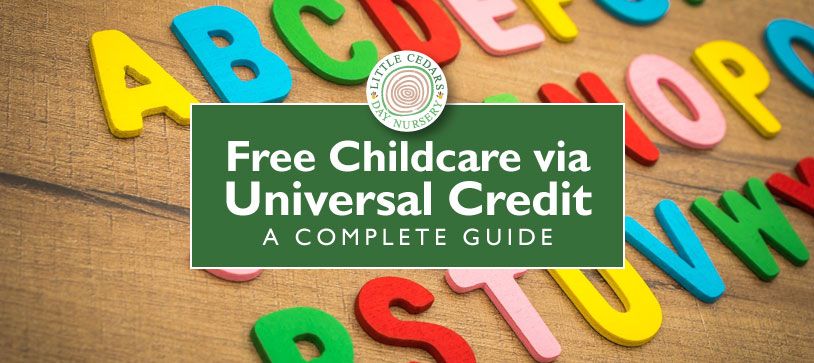
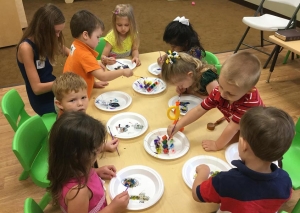 Welcome to our guide to free childcare available specifically via Universal Credit. This builds upon our previous childcare funding guides, giving parents yet another potential way to get financial help towards childcare costs. Which scheme suits you best rather depends upon your individual situation as each has its own rules for eligibility. If one scheme doesn’t fit with your situation, another may. You may even find that you can apply for multiple schemes in certain circumstances, and we’ll also touch upon that in this guide. (To view our previous guides on other funding schemes, see our
Welcome to our guide to free childcare available specifically via Universal Credit. This builds upon our previous childcare funding guides, giving parents yet another potential way to get financial help towards childcare costs. Which scheme suits you best rather depends upon your individual situation as each has its own rules for eligibility. If one scheme doesn’t fit with your situation, another may. You may even find that you can apply for multiple schemes in certain circumstances, and we’ll also touch upon that in this guide. (To view our previous guides on other funding schemes, see our 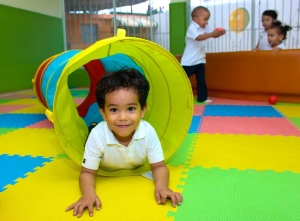 To be potentially eligible for childcare help through Universal credit, you must live in the UK, be on a low income or out of work and be aged 18 or over (although there are some exceptions for 16 and 17 year olds). You and your partner, if you have one, must also be under State Pension age and have no more than £16,000 in savings/investments between you.
To be potentially eligible for childcare help through Universal credit, you must live in the UK, be on a low income or out of work and be aged 18 or over (although there are some exceptions for 16 and 17 year olds). You and your partner, if you have one, must also be under State Pension age and have no more than £16,000 in savings/investments between you. If you have been offered new employment, you can ask for childcare costs for the month preceding the start of your new job. If you are coming to the end of your employment, you must inform the Department for Work and Pensions (‘DWP’) immediately. Help with childcare costs can be claimed at least a month after your employment ends to help you maintain childcare as you switch jobs.
If you have been offered new employment, you can ask for childcare costs for the month preceding the start of your new job. If you are coming to the end of your employment, you must inform the Department for Work and Pensions (‘DWP’) immediately. Help with childcare costs can be claimed at least a month after your employment ends to help you maintain childcare as you switch jobs. You can have more than one childcare provider. However, to apply for Government help with childcare you must use a registered/approved childcare provider. This generally means that the childcare provider is registered with Ofsted for England, The Care Inspectorate for Scotland or the
You can have more than one childcare provider. However, to apply for Government help with childcare you must use a registered/approved childcare provider. This generally means that the childcare provider is registered with Ofsted for England, The Care Inspectorate for Scotland or the 